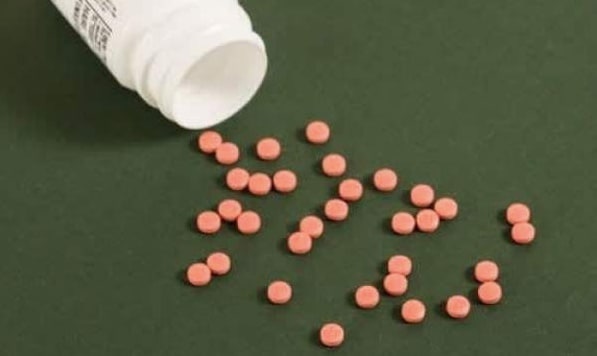What Happens if I Stop Taking Finasteride?

Finasteride (generic Propecia®) is a prescription tablet that is used to treat hereditary hair loss. Taking finasteride as prescribed can stop hair loss and help regrow some hair, but what happens if you stop taking it every day?
First, a quick recap on how finasteride helps stop hair loss.
How does finasteride work?
Male pattern baldness (also knows as androgenetic alopecia) is a hormonal condition that occurs when hair follicles shrink and thin out over time, until they stop growing. This permanent hair loss condition occurs because of a genetic sensitivity to DHT (dihydrotestosterone), which is a hormone that comes from testosterone and weakens our hair follicles (thanks, Mom and Dad!).
Because MPB is genetic, the most effective way to stop and prevent further hair loss is to block DHT production, which is exactly what finasteride does. Finasteride blocks the action of the enzyme that converts testosterone into DHT, called 5α-reductase, and prevents your body from producing DHT all together.
Hence, finasteride not only protects and strengthens your hair, but also effectively minimizes hair loss. According to clinical trials, a daily dose of 1mg of finasteride halted hair loss or increased hair growth in up to 90% of men. With consistent daily use over 4-6 months, these results should be visible.
Learn more: How to take finasteride
What happens if I quit using finasteride after a few months?
Finasteride has a relatively short half-life. So, once you stop taking the tablet, its effects should be out of your system within seven days and you can expect to see your usual rate of hair loss (what you experienced prior to taking the medication) return.
Why? Without finasteride, your body will not be able to block 5α-reductase, the enzyme that converts testosterone into DHT. For as long as you want to prevent hair loss, keep what you have, and even regrow more hair, finasteride is your best friend.
Learn more: How long until finasteride starts working?
Watch:
But is it safe to use finasteride for long periods of time?
Yes, finasteride is safe! A seven-year-long study tested the effects of long-term consumption of finasteride and observed no serious long-term consequences.
However, there are possible side effects of taking finasteride. Though rare, in clinical trials, 3.8% of male patients taking finasteride noticed some form of sexual side effects, including less desire for sex, difficulty in achieving an erection, or a decrease in the amount of semen released during sex. (2.1% of patients taking placebo reported similar side effects). These side effects may continue after stopping the treatment, so contact your doctor if you have any additional questions. You may also report side effects to the FDA at 1-800-FDA-1088.
Learn More: What you need to know about finasteride’s side effects
So, what’s the verdict?
In short, after quitting finasteride you can expect to see progress fade. But if you want to maintain what you have and achieve a fuller head of hair, continue using finasteride and join those 90% of men who stopped MPB in its tracks and kept their hair.
The information provided in this article is not a substitute for professional medical advice, diagnosis, or treatment. You should not rely upon the content provided in this article for specific medical advice. If you have any questions or concerns, please talk to your doctor.
If you’re experiencing a mental health crisis, please call 911 or go to your nearest emergency department. If you are contemplating suicide, call 911 or call/text the National Suicide and Crisis Lifeline at 988. These services are available 24/7.
If you would like to learn more about finasteride, please see the full prescription information here. You are encouraged to report negative side effects of prescription drugs to the FDA. Visit MedWatch: https://www.fda.gov/Safety/MedWatch/default.htm or call 1-800-FDA-1088.)